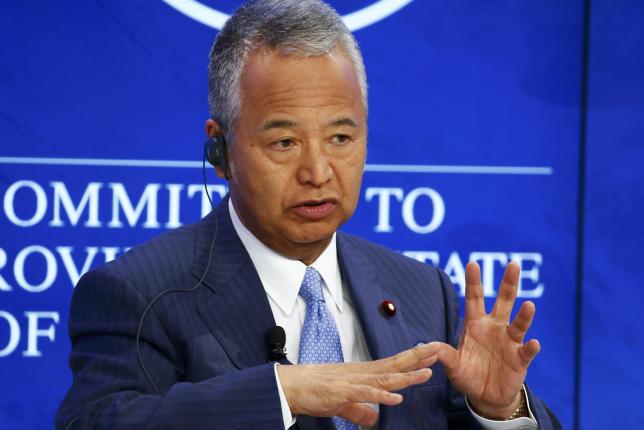Japan PM Abe wants Economy Minister Amari to stay in his post

TOKYO - Japanese Prime Minister Shinzo Abe said on Wednesday he wants his economy minister to continue in his post, suggesting the government is prepared to ride out pressure from opposition parties for Akira Amari to resign.
Amari, a core member of Abe's economic policy team, is under fire for a media report that he and his aides had accepted money from a construction company in exchange for helping the firm receive compensation for disputes over land ownership and waste removal at a public works site.
Amari said last week he had done nothing illegal and is expected to hold a news conference on Thursday to respond to the accusations in greater detail.
"I want Amari to continue carrying out the important work that he has done, including work on TPP," Abe said in the upper house of parliament.
"Amari is investigating the accusations and I expect him to explain the situation fully."
The media report about bribes comes at a sensitive time, with policymakers grappling with a sell-off in Japanese stocks, a rising yen and questions of whether more monetary easing is needed.
A spokesman also said on Wednesday the government is preparing to send Amari to a meeting next week in New Zealand on the Trans-Pacific Partnership (TPP) free trade bloc, in another sign the government wants to keep Amari in the cabinet.
Amari has played a crucial role in crafting Abe's stimulus policies, dubbed "Abenomics," and in negotiating for the TPP agreement. Some economists have expressed concern that Abe's economic policy would lose focus without Amari's leadership.
Amari has spearheaded the administration's pro-growth policies and called for increased spending on items such as more childcare facilities.
The accusations surrounding Amari could potentially harm the government's approval ratings before a national election expected this year.
The government plans to raise the nationwide sales tax next year to pay for healthcare spending, but this unpopular plan could be derailed if Abe's approval ratings suffer. "If Amari does not resign, it's a question of how far the opposition parties are willing to go," said Kazuhiko Ogata, chief economist Japan at Credit Agricole CIB. "This could raise the chance of an election and a delay in the sales tax increase." -Reuters







